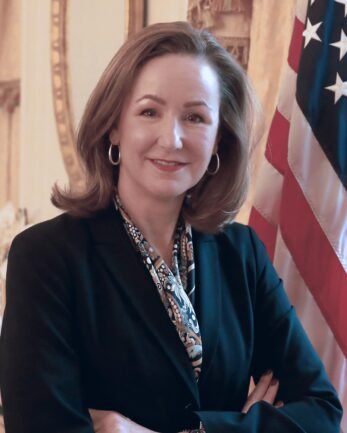Innocent Mujeri
In the spirit of constructive dialogue and mutual respect between nations, i find it imperative to address the concerns stirred by your recent comments regarding Zimbabwean politics.
Your arrival as the U.S. Ambassador to Zimbabwe was met with a sense of optimism, especially following the affirmations made by Mr Richard Verma, the U.S. Deputy Secretary for State Management and Resources. His words last month, touting you as one of America's finest diplomats dispatched to our nation, set high expectations.
However, the tone and content of your remarks shortly after assuming your new role have unfortunately sparked significant dismay and discomfort among the Zimbabwean populace and its leadership. It was both surprising and disheartening to see an esteemed visitor and a representative of a respected nation delve so quickly into the internal political dynamics of Zimbabwe, casting doubts on the integrity of our recent electoral processes which were deemed free and fair by many international observers.
In African culture, there is a valued tradition for a visitor to first understand their host's environment and to approach sensitive subjects with caution and understanding. This approach is not only a matter of cultural respect but also a foundational principle of effective diplomacy. Regrettably, your immediate dive into commenting on issues that are complex and deeply rooted in Zimbabwe's sovereign affairs appeared precipitate and not in line with these valued diplomatic norms.
Your statements, perceived as undiplomatic, have the potential to undermine the significant strides that President Mnangagwa and his administration have been making under the policies of engagement and re-engagement. These efforts are aimed not only at enhancing Zimbabwe's democratic processes but also at strengthening international relationships, including with the United States.
Ambassador Tremont, while the United States has made considerable contributions to global democracy, it is also true that no nation is without its challenges. Thus, it is crucial that international dialogues be approached with humility and a non-presumptive attitude.
The perception that the United States might be meddling in Zimbabwe's sovereign affairs can do more to harm relations than help them, and it certainly does not align with the principles of respect for national sovereignty and self-determination.
I urge you, Ambassador, to focus on the broader aspects of your mandate. There is a golden opportunity here to mend and deepen the ties between Zimbabwe and the United States.
Before another diplomatic misunderstanding unfolds, allow me to outline the fundamental responsibilities inherent in your role as an ambassador.
Ambassador Tremont, your role as the U.S. Ambassador to Zimbabwe carries with it a broad and impactful mandate. As the highest-ranking representative of the President and the United States Government within Zimbabwe, your responsibilities extend across the fostering of bilateral relations in political, economic, cultural, and security sectors.
This entails a thorough comprehension of Zimbabwe's political environment and societal norms, which is crucial for effectively communicating and negotiating U.S. interests. Additionally, your role requires building bridges between the United States and Zimbabwe, promoting understanding and mutual respect. This involves advocating for your country’s values while being considerate of Zimbabwe’s sovereignty and cultural values.
Your duties also include engaging with both local communities and U.S. citizens residing in Zimbabwe, fostering economic relations, and overseeing humanitarian efforts. It is imperative that you approach these tasks with diplomacy and tact, enhancing bilateral trade and investment opportunities.
Through a commitment to respectful and constructive diplomatic engagement, you have the potential to strengthen the relationship between the two nations, fostering a cooperative and mutually beneficial partnership.
Your role as an ambassador is not to act as a political activist nor to be seen as a judge of our political processes, but rather to facilitate understanding, cooperation, and respectful international relations.
I hope to see efforts from your office that aim to build bridges, enhancing mutual understanding and cooperation. It is through such endeavours that both our nations can benefit and learn from each other in our shared journey towards greater democracy and prosperity.
Collaborative projects, cultural exchanges, and economic partnerships should be the pillars of our interaction rather than contentious debates over internal politics.
In conclusion, I look forward to your tenure being marked by wisdom, respect for our traditions, and an unwavering commitment to the true essence of diplomacy.
Let us focus on what unites us and how we can work together to achieve shared goals, paving the way for a future where both Zimbabwe and the United States prosper together in harmony and mutual respect.
Sincerely
Innocent Mujeri




